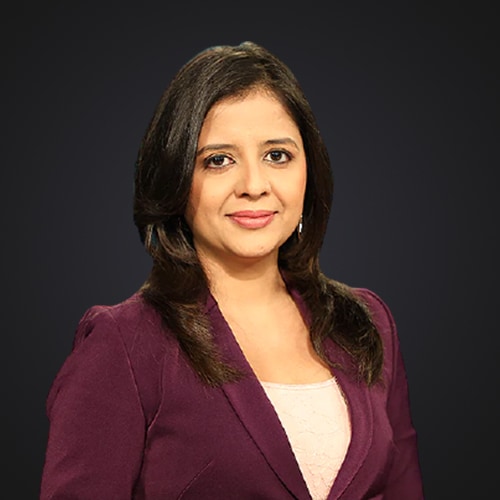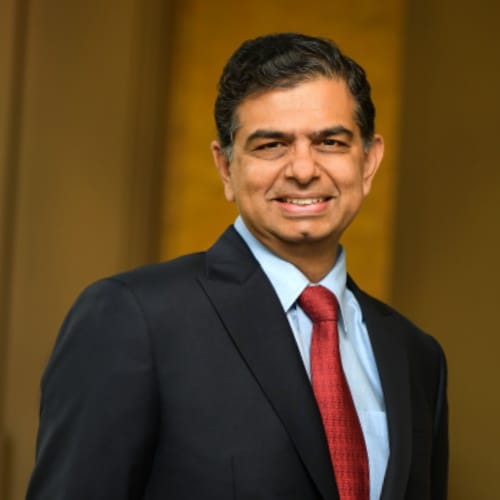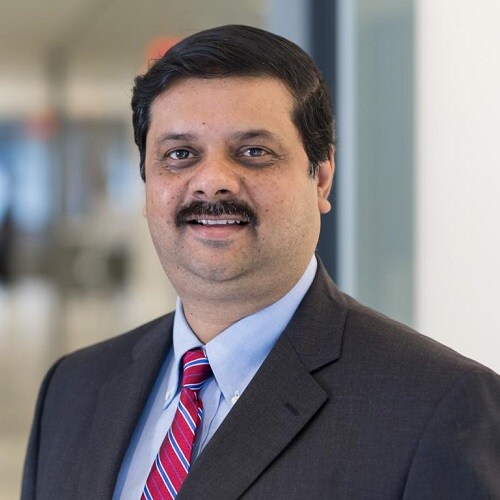ESG: A bridge to action

Nisha Poddar:
CNBC TV18
Hello and welcome to ESG: A bridge to action, a brand-new series in partnership with PwC, on moneycontrol.com. This is a platform where organisations that are looking to launch their ESG strategy can learn from the ones that have already embarked on the journey of building sustainable businesses.
For our launch episode, let me welcome our guests Sanjeev Krishan, Chairperson, PwC in India and Koushik Chatterjee, Executive Director and CFO, Tata Steel.
Gentlemen, so good to have you on the show. Before we start our discussion, let me first get a note from Ajay Piramal, Chairman of Piramal Enterprises, on the organisation’s ESG strategy.

Ajay Piramal:
Chairman of Piramal Enterprises
Clearly, this is a very important area of focus and has been highlighted much more during the COVID-19 pandemic. You've seen how sustainability is a significant issue and the difference it has made.
So, we are also focused on it. Our ESG focus has always existed, particularly on the pharma sector, and we will be increasing it over the next few years.
In financial services, other than focusing on the role of ESG in our organisation, we're also thinking of floating an ESG fund because I think ESG will be an important area of focus worldwide and there will be much more emphasis on this.

Nisha Poddar:
CNBC TV18
Alright so Piramal group is also looking at launching an ESG fund as told to us by Ajay Piramal.
Sanjeev, over the last one and a half years of the pandemic, sustainability thrust and compliance with ESG have become very big buzzwords amongst India Inc. and the world.
Why do you think the ESG agenda has gained prominence?

Sanjeev Krishan:
Chairman, PwC in India
Thank you, Nisha, and welcome everyone.
To respond to your question, I think the prominence in developing ESG strategies is just about stakeholder capitalism. When we look at stakeholders at large, we look at shareholders or providers of finances, and most of them are looking at long-term sustainable growth as opposed to any short-term gains. Irrespective of private or public money being utilised, everybody is looking at corporations who are focusing on the broader ESG agenda.
If you look at vital stakeholders such as governments, regulators, vendors and customers, they today want greater accountability and responsibility from their ecosystem. So, if you look at the wider ecosystem, i.e. the stakeholder ecosystem, each stakeholder wants to concentrate on ESG and this is really driving the broader focus at this moment.
I’d like to touch upon two more points. I look at ESG as a broad value creator. Today, most corporations are additionally focusing on ESG when they're developing their business strategy. I think this is happening because a successful ESG agenda can make you resilient, get you long-term sustainable value, create an authentic identity for cooperation, and generate trust.

Nisha Poddar:
CNBC TV18
We have a very good representation on the panel when we talk about resilience over the years and also building sustainable businesses because both PwC and Tata Steel are about hundred years old, and being operational for that long requires a certain sense of discipline as well as social consciousness.
So, Koushik Chatterjee, given the kind of ethos that the Tata Group brings to the company and considering that you have yourself championed the cause of sustainability for Tata Steel at various global fora as well, what is the plan for your company and the road ahead?

Kaushik Chatterjee:
Executive Director and CFO, Tata Steel
Thank you, Nisha. Hi Sanjeev, it’s great to be on this panel.
We live in a world of outages. We are living through unseasonal floods, cyclones and droughts, the pandemic, and other disruptions which are severely impacting our daily lives. Humanity is not prepared for mitigation and business disruptions are becoming a part of the new normal. Business enterprises are also a very important part of this entire broader ecosystem.
Hence, we have to essentially decide on the purpose of the corporation and that's what Tata Group and Tata Steel have done over the last hundred years – believing in the founders’ vision of what comes from society must go back to society.
ESG is essentially reframing that vision and I think it is important that businesses realise that we cannot only keep profiting from the planet. We have to strike a healthy balance between profit and maintaining sustainability because there are no artificial boundaries for nature. It doesn't recognise nation states. We live in one world and ESG is essentially a very broad subject and not a buzzword. It actually identifies the soul of a corporation.
I think that at Tata Steel, we have embedded ESG as a concept in our DNA in some form. For Tata Steel, which was established more than a hundred years ago, it is essential to recognise that we operate in one of the remotest and less developed regions in the country. To work with the community and the environment is very important. I think it is also important that over the last decade or so, more structured frameworks have been developed and they have helped corporations or become tools for corporations to measure ESG factors.
For example, the UN’s Sustainable Development Goals is a very robust framework which can be used to measure what is relevant for an organisation, what does it get impacted by and how does it affect the society. If you look at that 17-point structure, you can actually assess the relevance of each of them on a company, develop KPIs and move on a defined basis for the next five or ten years in your long-term strategy.
So, that's how we look at it. It's institutionalised and everything is embedded around the strategy.

Nisha Poddar:
CNBC TV18
Sanjeev, you know that many companies have come out with big announcements and are showcasing their ESG thrust now. In fact, they have set ambitious targets towards achieving net zero emission of carbon as well.
How much of it is actionable? Do we have enough tools and what could be the challenges on ground?

Sanjeev Krishan:
Chairman, PwC in India
First of all, it's great to see so many companies and countries actually participating in the ESG agenda.
As Kaushik said and as we've been discussing earlier, I think providers of capital and wider stakeholders are driving the ESG agenda. I do believe that there are some very tangible actions being taken on each front, whether it is environmental, social or governance.
On the environmental front, look at the impact of climate change. This continued rainfall could have a serious impact on the next sowing season. These are the areas which are almost becoming an imperative for organisations. So, it is not just about a thing which is good to do. It is also about business and long-term value. Corporations are taking some very tangible steps as well as relooking at their supply chains.
Some organisations are trying to domesticate their supply chains. But it is not just about domestication. It is also about making sure that they are going to create supply chains which are sustainable. They need to ask whether other entities in the supply chain ecosystem are ESG compliant or not. How do they make the entire supply chain and distribution network ESG compliant?
So, these are some very significant changes which are materialising as companies are trying to transform. Many organisations have become very socially responsible at this point in time. They are acknowledging diversity. We always keep saying that diversity in thought gets you the best actions and those actions translate into best results.
Companies are embracing diversity at a very differentiated pace today. And of course, governance has been a focus for many corporations over the years and they're taking further steps towards improving it.
I'd like to make two points before I end. Firstly, even though organisations are taking a lot of tangible steps and CXOs and boards are realising the importance of ESG and driving it, the broader ecosystem of ESG and how companies can use various facets of innovation, technology and even availability of finance, are some of the aspects that are still developing at this point in time. I think we will get there but this is something which is ongoing.
Secondly, some of the ESG-related development is going to cost in the interim. When organisations change their supply chains and make them more environment or ESG friendly, they are going to incur some near-term cost. So, you might see a spike in your cost and that's something that you'll have to deal with.

Nisha Poddar:
CNBC TV18
It's an investment in the future, so that's the way to look at it. But Kaushik Chatterjee, reporting disclosures is extremely important and the templates to do that are yet to be formulated.
What do you have to say about the non-financial ESG factors and their disclosures?

Kaushik Chatterjee:
Executive Director and CFO, Tata Steel
I think it all starts from the fact that financial stakeholders, be it asset owners or managers, banks and financial institutions, and now gradually central banks, have formed a coalition in the GFS. I think it is important to understand that reporting and disclosures are critical anchors around the whole ESG platform.
The fundamental reason behind reporting and disclosures is that unless a company measures, defines, or engages in a material level of disclosure, the stakeholders would not be aware of how it is planning and implementing its ESG strategy. What are the risks and opportunities for those strategies? These areas have become very critical for financial stakeholders because there may be a time in the near future when banks would want to know how does the biodiversity platform function in a project, which an organisation wants to engage in, before they lend. A proxy advisory firm or an analyst need to understand what are the climate action targets that an organisation has undertaken and how clearly have they been disclosed in the financial or corporate reporting statements.
So, this has become a very critical part of the whole platform and with IFI introducing standard setting in the non-financial area, I think financial and non-financial reporting will converge very soon, resulting in a unified corporate reporting, based on which will be integrated and help readers or stakeholders understand better.
We have been publishing integrated reports for the last five years on the Integrated Reporting Framework of the IIRC and now see the Value Reporting Foundation being formed with a combination of the SASB and IIRC. So, there are a lot of standards-setting processes which are being established because it's important to understand the definition, materiality, standards and level of disclosure for the purpose of comparability, and assess what a company is actually doing. So, reporting and disclosures are fundamental to the entire ESG space.

Nisha Poddar:
CNBC TV18
That particular framework, in terms of comparisons as well as coming up with a template for disclosures, is still evolving. We will learn along the journey but it's a highly enriching experience to have both of you on the panel to understand the whole ESG framework, and especially what Tata Steel is working on.
Thank you so much for joining us. With that, we will wrap up this episode. Remember, that vote to sustainability has begun and ESG is the new normal.













